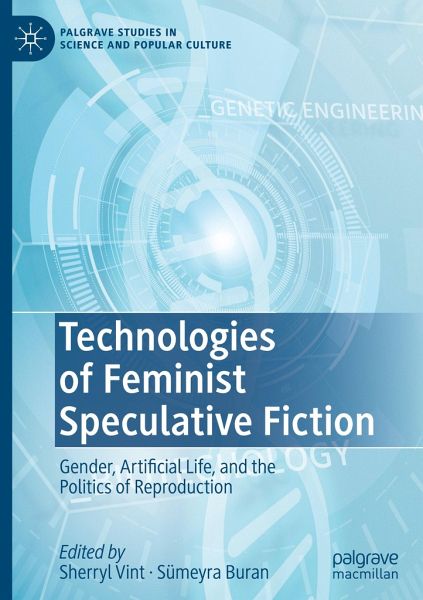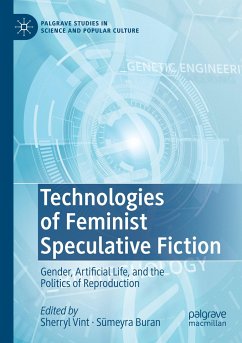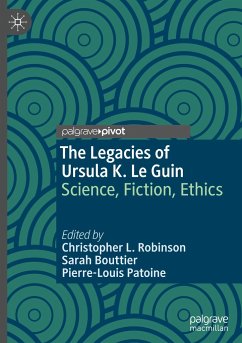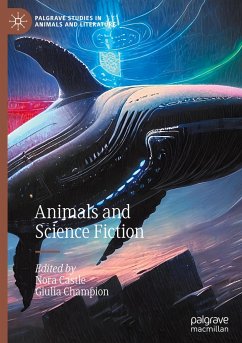
Technologies of Feminist Speculative Fiction
Gender, Artificial Life, and the Politics of Reproduction
Herausgegeben: Vint, Sherryl; Buran, Sümeyra

PAYBACK Punkte
0 °P sammeln!
Technologies of Feminist Speculative Fiction: Gender, Artificial Life, and the Politics of Reproduction explores how much technology has reshaped feminist conversations in the decades since Donna Haraway's influential "Cyborg Manifesto" was published. With sections exploring reproductive technologies, new ways of imagining femininity and motherhood via artificial means, queer readings of gender as a social technology, and posthuman visions of a world beyond gender, this book demonstrates how feminist speculative fiction offers an urgently needed response to the intersections of women's bodies ...
Technologies of Feminist Speculative Fiction: Gender, Artificial Life, and the Politics of Reproduction explores how much technology has reshaped feminist conversations in the decades since Donna Haraway's influential "Cyborg Manifesto" was published. With sections exploring reproductive technologies, new ways of imagining femininity and motherhood via artificial means, queer readings of gender as a social technology, and posthuman visions of a world beyond gender, this book demonstrates how feminist speculative fiction offers an urgently needed response to the intersections of women's bodies and technology. This collection brings together authors from Europe, Japan, the US and the UK to consider speculative films and texts, reproductive technologies and food futures, and opportunities to rethink family, aging, gender and sexuality, and community through feminist speculative fiction, a social technology for building better futures.














